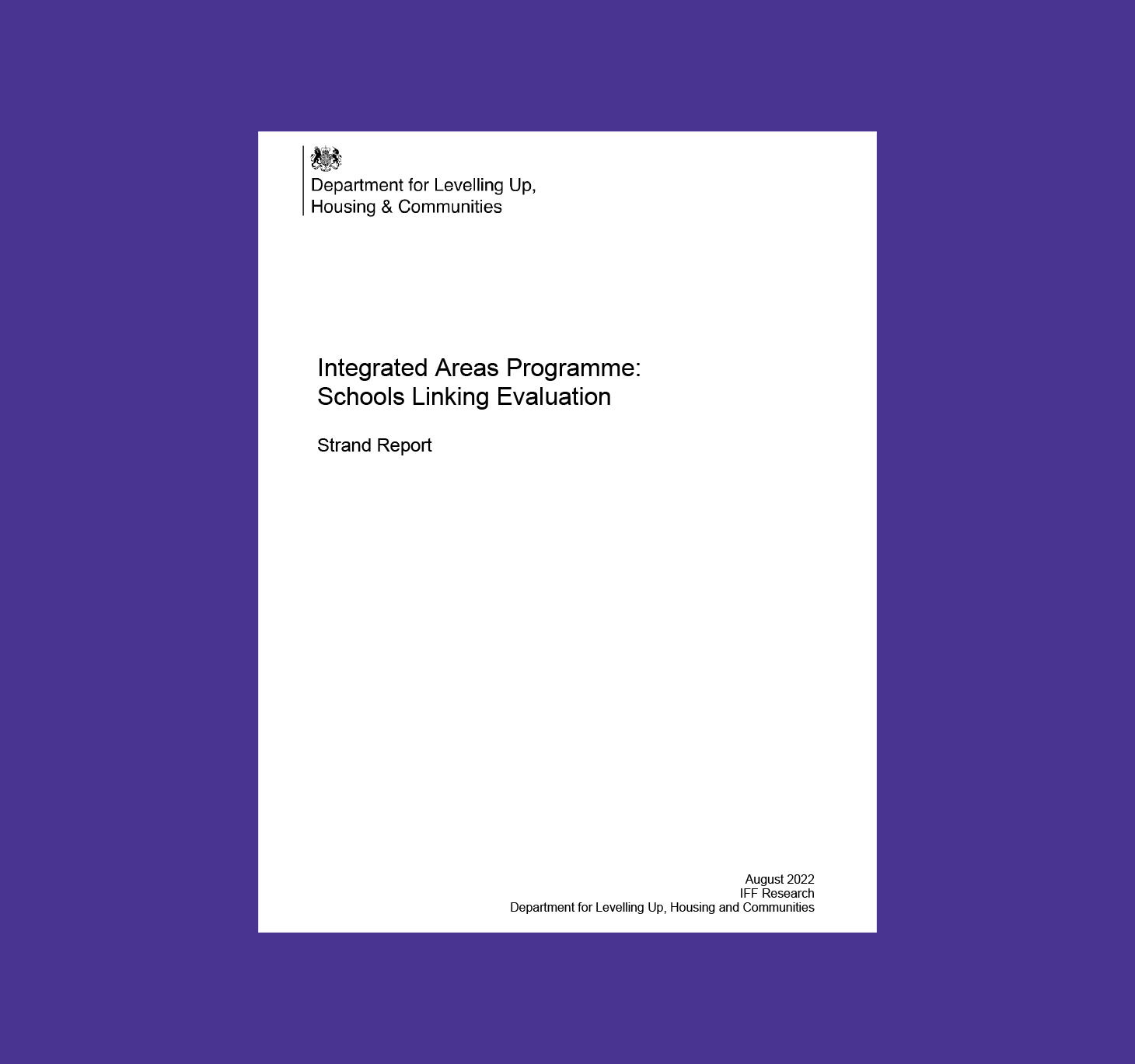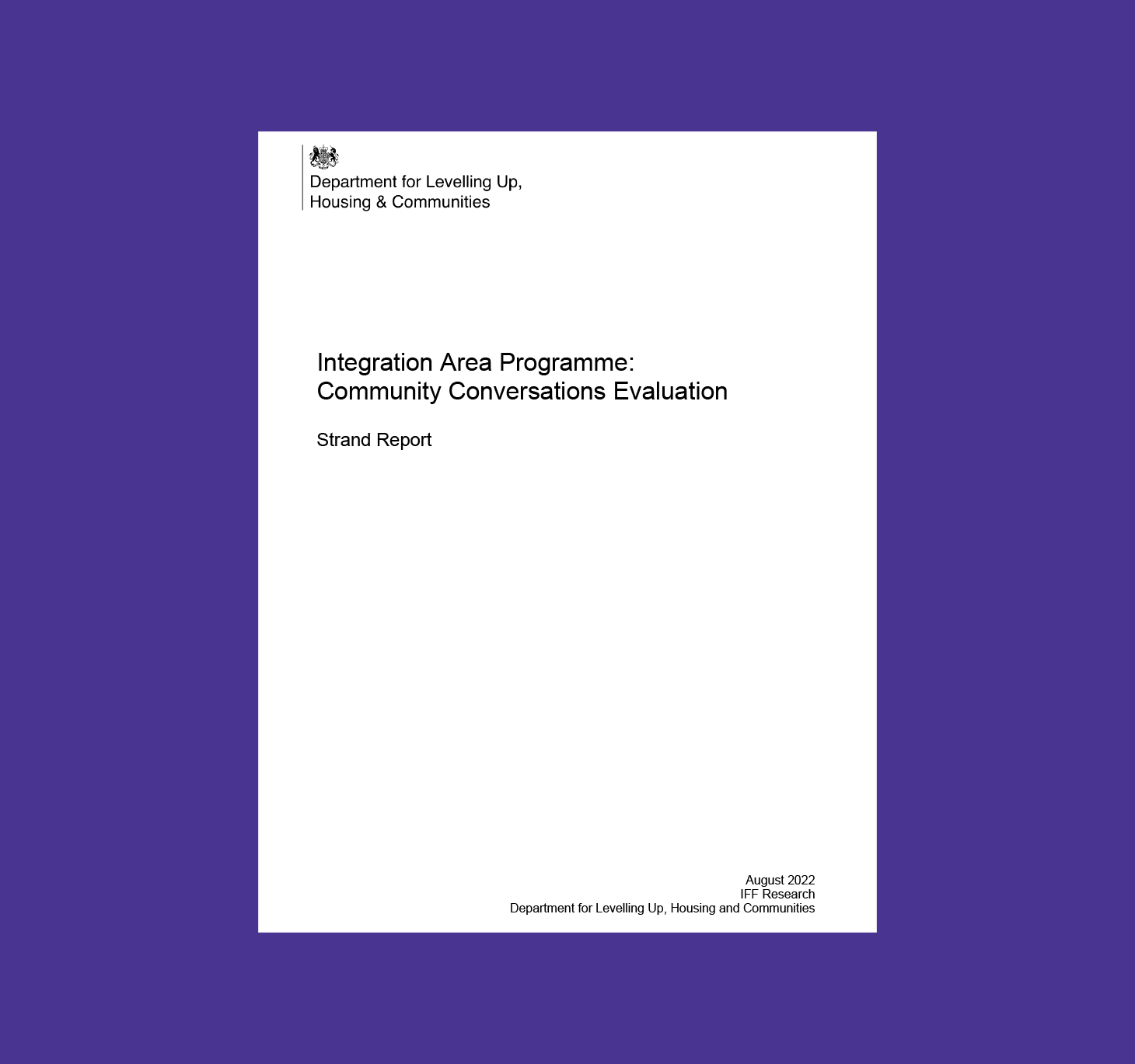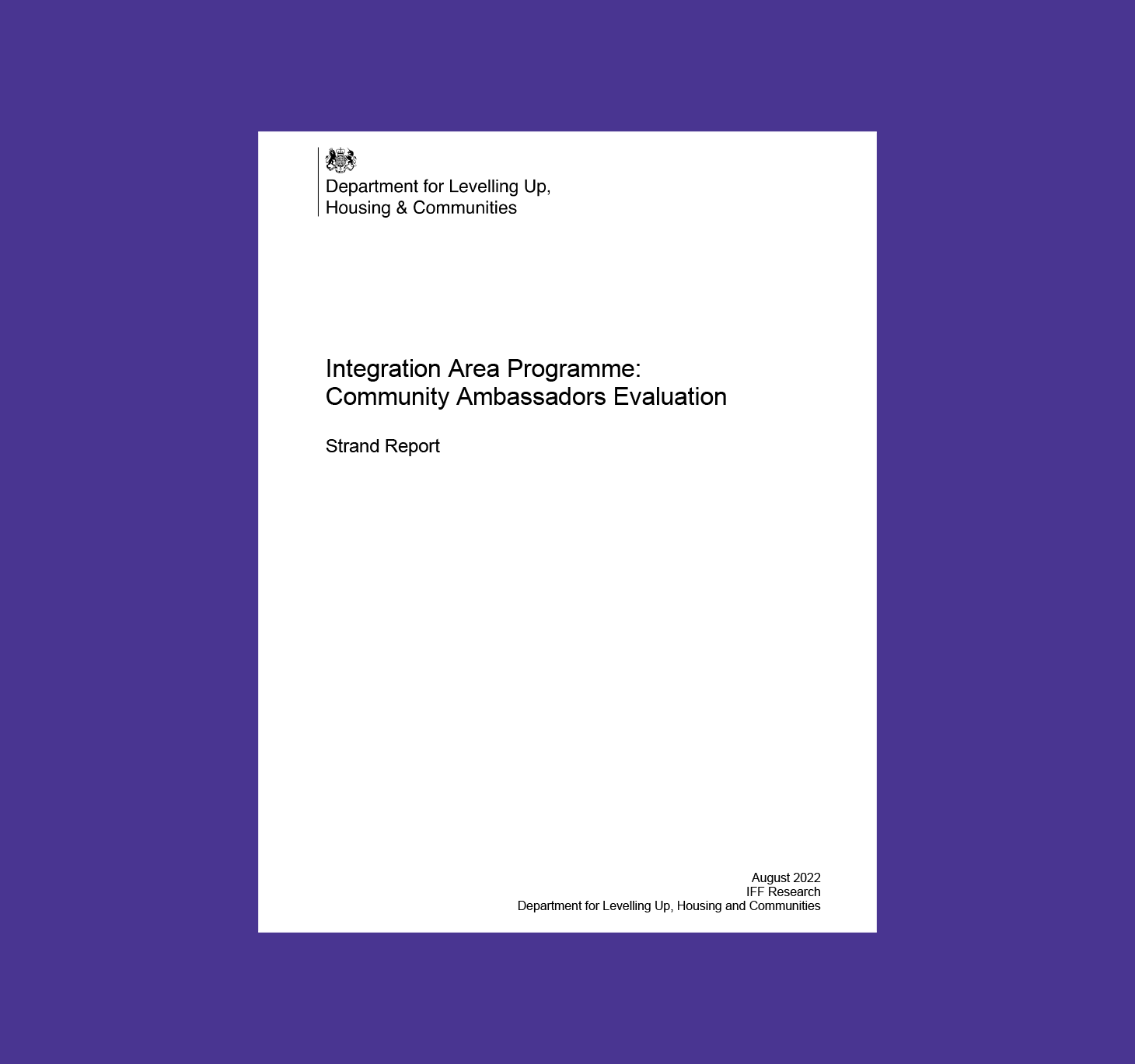August 2022 Independent Evaluations of the Integration Area Programme

Schools Linking
Schools Linking is a programme facilitating social mixing between schools within areas that have been identified to have segregated communities. It was found to have a positive effect on pupils and helped to support IAP related outcomes in participating schools, particularly improving pupils’ confidence in meeting young people of different ethnicities, religions, and economic backgrounds; and improving pupils’ understanding of different races, religions, and cultures. Notably, however, it did not raise them to the level seen in some other similar schools.

Community Conversations
Community Conversations consisted of events that created safe spaces for community members to engage in facilitated debate on integration-related topics such as race, culture, and religion. The evaluation found it to be well received by participants, who found their experience positive, and felt a sense of pride and satisfaction from being involved. It also showed that it may have had an influence over some of the outcome areas of meaningful social mixing. However, pandemic and intervention size-related evaluation limitations mean that it is not possible to say with certainty whether the Community Conversations intervention worked to achieve its intended outcomes.

Community Ambassadors
Community Ambassadors provided training and support to local volunteers with the aim of developing local leadership skills that would enable the championing of integration values within their communities. The model was found to have several positive impacts, for example in improving Ambassadors’ comfort engaging with individuals from different backgrounds and their motivation to effect local improvements. However, more evidence is needed to determine how trained Ambassadors go on to impact their local communities. The evaluation identified factors that are worth replicating in future programmes as well as ways the programme could have increased its potential for having impact.
